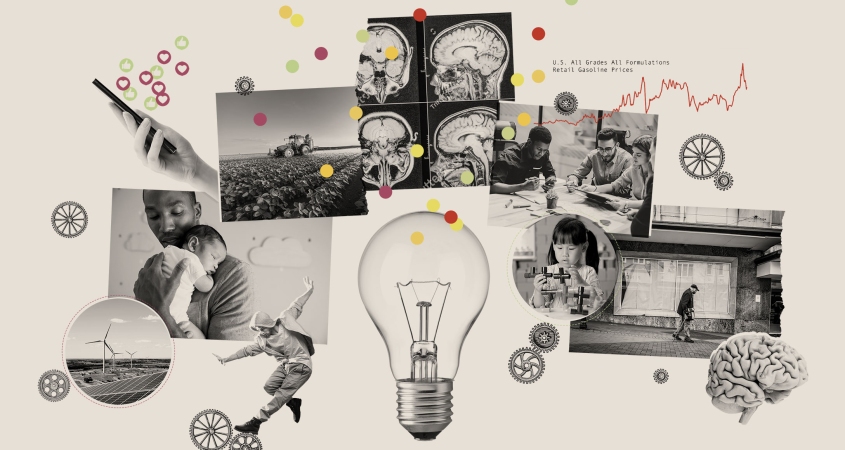In 2015, the revelation that Volkswagen had been gaming emissions tests shook the corporate world. The deception involved 11 million diesel cars being fitted with a ‘defeat device’, which masked the emissions released by these vehicles when they detected they were undergoing testing, but otherwise polluted at levels flagrantly beyond legal limits. Since being busted, Volkswagen has paid more than $39 billion in fines to compensate for this large-scale fraud, and the pollution released by these vehicles is believed to have significantly damaged the health of children exposed to it.
Martin Winterkorn, the then CEO of Volkswagen, who has since been ousted over this scandal, had elevated the company to the top of the auto industry, and was widely seen as a good leader. However, Winterkorn also carried a reputation for his controlling and intimidating demeanour. “There was always a distance, a fear”, a former Volkswagen executive confided, reliving the sense of dread he experienced when facing Winterkorn. “If he would come and visit or you had to go to him, your pulse would go up”.
The Volkswagen emissions scandal raises a critical question: can leaders’ management style, whilst not directly encouraging unethical behaviour, still inadvertently promote it? This sets the scene for a deeper exploration of leadership outlined in “More Than Meets the Eye: The Unintended Consequence of Leader Dominance Orientation on Subordinate Ethicality“, a paper authored by Doctor Garrett Brady and Professor Niro Sivanathan at London Business School, which was recently published in the journal Organizational Science.
Through a series of studies, Garrett Brady and Niro Sivanathan sought to understand the profound ways in which leaders’ behaviours and actions sway employees, and mould social norms within commercial entities. More specifically, their paper investigated how perceptions of the moral character of business leaders can shift the ethical foundations a company has been built on.
Brady and Sivanathan draw on the time-tested wisdom of evolutionary theory to make sense of such phenomena. Whilst we often attribute our species’ success to our innate intelligence, our superpower is really our razor sharp social skills. Over eons, the human brain has been sculpted by the forces of natural selection to help us navigate our social worlds, including forming alliances and succeeding in status games. Through their in-depth explorations into the origins and functions of leadership, evolutionary psychologists have circled in on two distinct paths that people pursue to climb the social ladder.
Firstly, there’s dominance—asserting one’s status through force, intimidation, and coercion. This type of leadership is ancient, and traces back millions of years through our primate heritage. Throughout the natural world, animals that are the most powerful and menacing fighters are usually granted high status (if you don’t believe me, watch David Attenborough’s latest documentary series).
In the tree of life, human and chimpanzee lineages split off from their common ancestor approximately 5 to 7 million years ago. Our shared evolutionary heritage explains why, like our primate cousins, we humans roam our social worlds being exquisitely sensitive to signs of dominance.
However, the story of leadership is not so straightforward when we home in on homosapiens. Unlike other animals, we humans are a cultural species. We need to be socialised, and critically depend on collective knows for our very survival (how long would you be able to survive if you found yourself lost and all alone in the wilderness?). As a result, we seek leaders with the knowledge and skills that our groups need to survive and thrive. This path to leadership is very different than what you typically see in a wildlife documentary, and is aptly called prestige.
Intriguingly, scientific research suggests both paths appear to be equally effective ways of gaining status. That is, one can climb to the top of the tree through primal dominance, or by inspiring others with prestige (although dominance has a shorter shelf-life, and appears to be counterproductive for women).
As with all things in life, there are trade-offs involved. Dominant leaders are often praised for acting swiftly and decisively, and they are also people’s choice when our groups are under attack (if your country was on the verge of being invaded, who would you rather have as your Commander in Chief, George W. Bush, or Angela Merkel?). That said, dominant leaders also come with a hefty price tag: demoralised employees, reduced creativity, and in turn, people clamouring to leave. Through their series of studies, Brady and Sivanathan reveal another hidden cost dominant leaders charge to their firms: dominant leaders’ desire to assert control can, unintentionally, encourage unethical behaviour to spread.
To detect the ripple effects of leaders’ dominance, Brady and Sivanathan used a range of scientific instruments available at their disposal. Initially, they surveyed a cohort of managers, based in India, and their direct reports. In total, 150 managers were surveyed, spanning 23 industries, along with 600 of their employees. What insights did this generate? Employees who reported into domineering managers stated that they were more likely to engage in unethical acts where they work (a candid admission, I know).
Extending this line of inquiry using a longitudinal study, Brady and Sivanathan surveyed 384 employees, twice, over a period of two weeks. By meticulously sifting through quantitative data, they documented a chain reaction of managers behaving in a domineering manner, where excessive dominance caused their teams not only to expect such behaviour from their leaders, but, consequently, to deem unethical actions committed by their team members as more permissible.
Perhaps employees’ anxieties and their sense of fairness explain this relationship between leaders’ dominance and the ethical conduct of their teams? Given authoritarian leaders like to rule with an iron fist, subordinates may engage in unethical practises because of the buckling pressure they are subject to, and the resentment boiling beneath their collars. Whilst Brady and Sivanathan did find evidence of people engaging in unethical behaviours at work out of indignation, they also found that perceptions of leaders’ dominance was strongly associated with employees saying that their leader is more likely to engage in unethical behaviour, and in turn, seeing such unethical actions as acceptable behaviour themselves.
To move beyond mere correlations, a clever experiment was set up. Brady and Sivanathan exposed their human guinea pigs (in this case, 550 Americans recruited via Amazon Mechanical Turk) to a brief video of an actor welcoming a cohort of new joiners to their fictitious firm, varying their host’s degree of prestige or dominance. Those that watched the dominant leader bossing people around during this induction session concluded that their host lacked virtue. Crucially, they also believed that violating norms within this hypothetical work environment would be deemed more acceptable.
To make sure that their study was watertight, Brady and Sivanathan also conducted a laboratory experiment. 293 lucky individuals were invited to a laboratory based in the UK, and placed under the direction of a dominant or prestigious facilitator. They were made to believe that they were supporting research for a fake company, and were asked to correct some coding errors as quickly as possible. Unbeknown to the participants, several of these coding errors were impossible to solve. In support of their hypotheses, they found that participants being facilitated by a dominant leader lied more about the amount of coding errors they were able to solve, and were more likely to say that ‘lots of other people misreport the numbers’. Additional studies strengthened these observations, revealing that teams under the command of dominant leaders were more likely to act unethically, and to see such behaviour as the norm.
Brady and Sivanathan’s comprehensive studies suggests that leaders’ dominance is more than just a management style; it’s a powerful pulse that reverberates throughout the workplace. Leaders that project dominance can cast a shadow of questionable ethics, encouraging behaviours amongst their employees that mirror their hazy morals. In contrast, prestigious leaders, with their power to inspire people and genuine concern for the welfare of their group, may foster a more ethical climate.
What are the practical implications of their paper? By default, most companies looking to enhance the ethical conduct of their employees will roll-out interventions targeted at individuals, including bite-sized, solitary, ethics training. Whilst this may seem sensible on the surface, such initiatives are woefully adequate. In light of these research findings, business executives, compliance professionals, and their supervisors, need to zero in on social norms, and the complex interaction between leaders and the cultural evolution they set in motion. In other words, they need to deploy more sophisticated, and scientific, ‘behavioural risk management’.
Brady and Sivanathan encourage companies to install what they term a robust ‘ethical infrastructure’. “Boards may be aware of leaders they recognize as exerting influence via dominance. While they may be happy with these leaders’ work so far, they should take steps to combat potentially unfounded inferences that subordinates make.” Whilst reemphasising high ethical standards is important, a stronger statement would be to reign in these leaders in through executive coaching, or, if these efforts prove to be futile and more drastic action is deemed necessary, to ask them to leave.
The authors stress that their findings are confined to the workplace. However, it doesn’t take much imagination to see how these dynamics can manifest in other critical spheres of society, such as political governance and the military. Looking at the extreme end of the scale, human history is scarred by conflicts and atrocities often linked to the unchecked primal dominance of psychopathic leaders. Appreciating the stakes involved, Brady and Sivanathan’s research serves as a timely reminder for organisations to resist the allure of dominant leaders.
In summary, Brady and Sivanathan’s paper forces us to rethink who we should appoint to run our institutions. Such reflections are particularly important during times of uncertainty, where dominant figures frequently rise from the ashes to promise us law and order. The hidden costs of such leaders, including the potential for creating a work environment ripe for misconduct, is becoming increasingly evident.
Written by Max Beilby for Darwinian Business.

